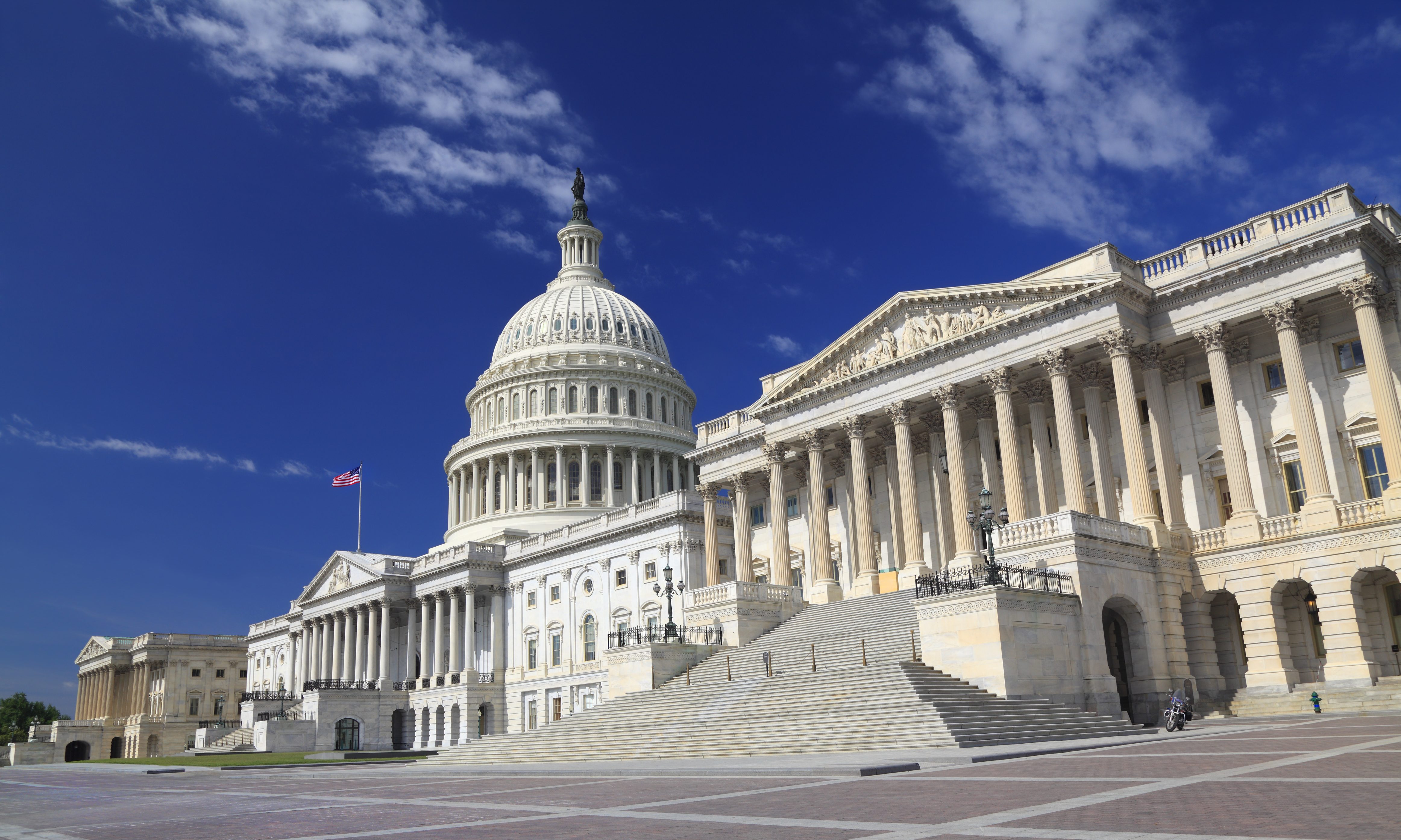Early Wednesday morning, the White House and Senate leaders finally reached a deal on a massive stimulus package they are hoping can keep the American economy from falling into a deep recession due to the government-imposed economic shutdown to deal with the growing coronavirus threat.
The final version of the Senate bill comes with a two trillion dollar price tag. The plan includes tax rebates, four months of expanded unemployment benefits, a $500 billion corporate liquidity program, $100 billion in aid for hospitals, $150 billion in aid for state and local governments, money for education, transit programs, and airlines, as well as checks to families, and a slue of tax rebates and benefits for businesses and corporations. It also authorized the Federal Reserve in conjunction with the Treasury to make up to $4 trillion in loans to corporations.
Americans who make up to $75,000 a year will get a one time check of $1,200. Americans with no or little tax liability would receive the same amount. The original Republican proposal had given them a minimum of $600. The deal was reached following five intense days of negotiations that began on Friday.
“At last we have a deal. … the Senate has reached a bipartisan agreement,” Senate Majority Leader Mitch McConnell (R-Kentucky) said during a speech on the Senate floor after 1:30 a.m. on Wednesday. McConnell pledging that the Senate will pass the stimulus bill later today.
Senate Minority Leader Charles “Chuck” Schumer (D-New York) praised the bill as “the largest rescue package in American history.”
“This bill is far from perfect, but we believe the legislation has been improved significantly to warrant its quick consideration and passage,” Schumer said.
The Hill is reporting that McConnell, Schumer, Treasury Secretary Steve Mnuchin, White House legislative affairs director Eric Ueland and incoming White House chief of staff Mark Meadows were all in the final negotiations. Schumer kept Speaker of the House Nancy Pelosi (D-California) closely abreast of what was happening during the discussions.
Pelosi has introduced her own $2.5 trillion stimulus bill that includes Democratic priorities such as ending photo ID for voting, parts of the Green New Deal, higher fuel economy and emissions standards for airplanes, and increased union collective bargaining powers. Republicans point to items like $35 million for the JFK Center for the Performing Arts as pork in the Pelosi bill.
“With this coronavirus relief package, we’re trying to keep people employed—helping companies, large and small, maintain payroll to prevent massive layoffs,” said Sen. Mitt Romney (R-Utah). “This isn’t a corporate bailout. Spoke with KSL News radio this morning about why this is not the time for my Democratic colleagues to stall this package to add unrelated pet projects.”
“With hundreds of thousands being laid off every single day and employers shutting down—some permanently—this is no time for Democrats to dither, hoping to win corporate social engineering points,” Romney added. “Shameful, destructive, and dangerous.”
Sen. Richard Shelby (R-Alabama) was an early supporter of a COVID-19 stimulus bill.
“It is my hope that in the coming days, we can pass an additional package that will contain comprehensive funding and protections to mitigate this virus and safeguard small businesses and others that make up the economic foundation of our nation,” Shelby said before deliberations began.
Sen. Doug Jones (D-Alabama) voted against ending debate (and negotiations) on Monday over dissatisfaction with the bill that McConnell introduced.
“You know the old saying: half a loaf is better than none,” Jones said. “But the vote today was not even 1/2 a loaf for hospitals, city & county gov’ts, small businesses & working folks, who would have got just a couple of slices while most of the bread goes to bailouts. That is why I voted NO!”
Jones said in a video statement that his two main sticking points were a lack of support for state and local government and a lack of transparency in the $500 billion corporate stabilization fund.
Republicans conceded both points to Jones.
Republicans hold a 53 to 47 majority in the Senate, but were seriously weakened when Sen. Rand Paul (R-Kentucky) announced that he was infected with the novel coronavirus. This meant that Paul, as well as Utah Republican Sens. Mitt Romney and Mike Lee who are regularly in close contact with Paul, have to self-quarantine for 14 days so are unavailable for votes on the Senate floor.
According to a source in the administration speaking to the Hill, “The legislation creates an inspector general and oversight committee for the corporate assistance program, similar to what was done for the Troubled Asset Relief Program of a decade ago, according to the senior administration official.
Jones had objected to giving Mnuchin sole power to decide what corporations he gave loans and guarantees to corporations. Jones also demanded and got the $150 billion for state and local governments. Those points were both addressed in this version of the bill. On Monday, Jones co-sponsored legislation giving COVID-19 relief to hospitals. This version of the bill includes $100 billion in COVID-19 relief for hospitals. Congresswoman Terri Sewell (D-Selma) cosponsored similar legislation to Jones’s bill in the House.
Jones voted to end debate on an earlier version of the bill after Republicans conceded to his points.
A final key sticking point was bailouts for the troubled airlines, who have seen most of their international business grounded by the federal government. Republicans wanted to aid the airlines while some Democrats objected. This bill contains $25 billion in direct aid for airlines and $4 billion for air cargo carriers. The bill includes hundreds of billions of dollars in buffer capital for the Treasury Department to allow the Federal Reserve to hand out an additional $4 trillion in loans to distressed companies such as U.S. airlines and Boeing.
In a nod to Democrats, the bill bans stock buybacks for any corporation that accepts government loans during the term of their assistance plus one year. Schumer asked for and got a provision to ban businesses owned by the president, vice president, members of Congress and the heads of federal executive departments from receiving loans or investments through the corporate liquidity program. The prohibition also applies to their children, spouses and in-laws.
The bill includes $30 billion in emergency education funding, $25 billion in emergency transit funding, and creates an employee retention tax credit to incentivize businesses to keep workers on payroll during the crisis.
Aides are working on drafting the language for the final bill and a vote is expected later today.
(Orignal reporting by the Hill’s Alexander Bolton and Jordain Carney contributed to this report.)


















































